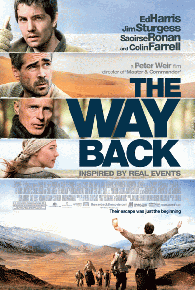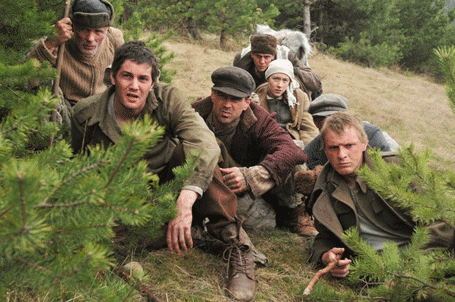
Set on the eve of World War II, the film takes place shortly after the partition of Poland by two great tyrannies of the 20th century: Nazi Germany and Stalinist Soviet Union. There are few hiding places for enemies of the people and there are few worse fates than the Gulag, the vast Siberian complex of prison camps where you either work, die, or most likely die working.
Thrown into this harshly beautiful and unforgiving of landscapes is our cast, most prominently American lone wolf and libertarian stand-in “Mister Smith” (Ed Harris), Polish cadre Janusz (Jim Sturgess), whose tortured wife turned him in, Russian mobster Valka (Colin Farrell). Preferring to die as free men rather than live as prisoners, they embark on a hastily planned escape into the Siberian wilderness, hoping to get to Mongolia.
The strong performances by a game cast and gorgeous scenery that make the film a trip worth taking. Ed Harris has more gravitas pound for pound than any other actor of his generation working today and is always enjoyable to watch. And also startling is young upstart Jim Sturgess, whose effortless ability to channel a natural, noble goodness has been ill-served by the likes of Legend of the Guardians. Here, he almost transforms from a young heartthrob to the suitably weary idealistic who holds on to every bit of his idealism in a world that offers none.
Director Peter Weir and his cinematographer Russell Boyd conjure up some of the most beautiful vistas in epic filmmaking since David Lean’s Lawrence of Arabia, a film I believe they must have watched before every day of filming, complete with a sequence that attempts to replicate the famous “Sun’s Anvil” sequence from Lawrence.
The film falters at its conclusion, offering a dénoument that is bizarrely naive or typically conservative American, given the nature of the Cold War and the less savoury consequences of its victory. Still, The Way Back is a stirring old fashioned drama proving that “Live free and die” isn’t that bad a way to live at all.












 打印版本
打印版本











读者回应
请先登入再使用此功能。